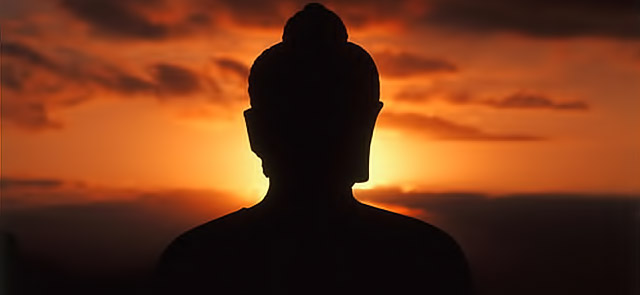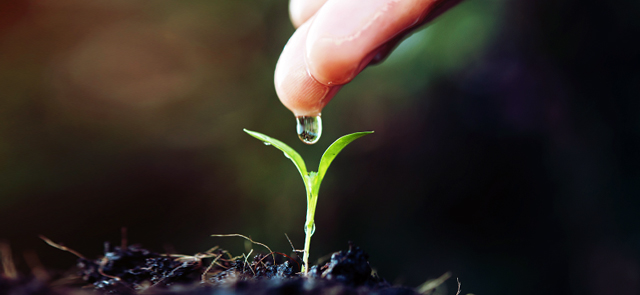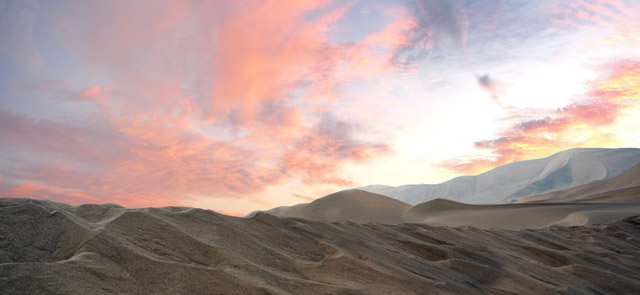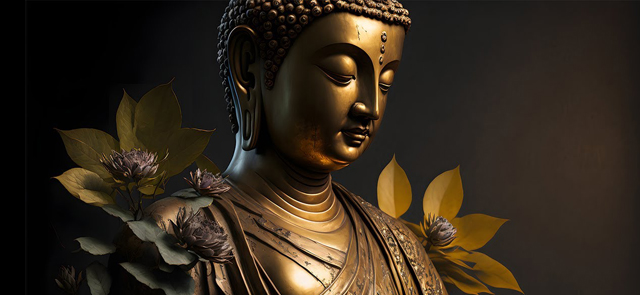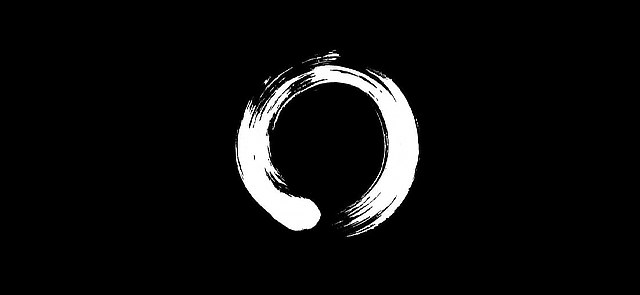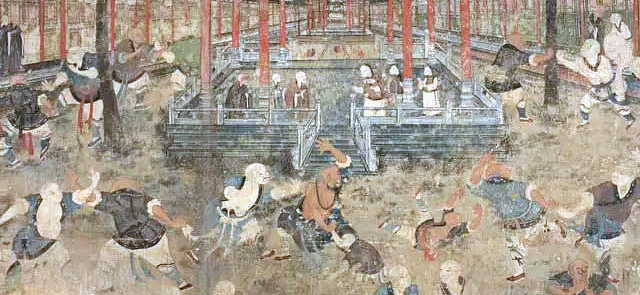Taking fish and meat by itself does not make a man become impure. A man makes himself impure by bigotry, deceit, envy, self-exaltation, disparagement and other evil intentions. Through his own evil thoughts and actions, man makes himself impure.
There is no strict rule in Buddhism (according to the Pali scriptures) that the followers of the Buddha should not take fish and meat. The only advice given by the Buddha is that they should not be involved in killing intentionally or they should not ask others to kill any living being for them. However, those who take vegetable food and abstain from animal flesh are praiseworthy.
On the other hand, in Mahayana scriptures Buddha categorically prohibited consumption of the flesh of any animal that was "seen, heard or suspected" to have been killed specifically for the benefit of monks. (Jivaka Sutra, Majjhima Nikaya 55).
It should be noted that there are two main classes of scriptures in Buddhism, those of the Pali Cannon, which form the foundation of Theravada Buddhism and the Mahayana, which represents the Buddhism of China, Japan, Korea, etc. The Pali Cannon was written around 80 BC and the Mahayana in approximately 100 to 400 AD.
Today Mahayana followers are vegetarians and Theravada followers are not. However the situation is a little more complex than that. Generally Theravadins have no dietary restrictions although it is not uncommon to find monks and lay people who are strict vegetarians. Others abstain from meat while eating fish. Chinese and Vietnamese monks and nuns are strictly vegetarian.
Vegetarianism in Lankavatara Sutra
This Sutra was a discussion of the fundamental concepts of Mahayana Buddhism. Chapter Eight is entirely devoted to the prohibition of meat eating. As we know Patriarch Bodhidharma teach Shaolin Monks from this book, only.
"The Blessed One said this to him:
For innumerable reasons, Mahamati, the Bodhisattva, whose nature is compassion, is not to eat any meat."
"Now, Mahamati, the food I have permitted (my disciples to take) is gratifying to all wise people but is avoided by the unwise; it is productive of many merits, it keeps away many evils; and it has been prescribed by the ancient Rishis. It comprises rice, barley, wheat, kidney beans, beans, lentils, etc., clarified butter, oil, honey, molasses, treacle, sugar cane, coarse sugar, etc.; food prepared with these is proper food."
"If, Mahamati, meat is not eaten by anybody for any reason, there will be no destroyer of life. Mahamati, in the majority of cases the slaughtering of innocent living beings is done for pride and very rarely for other causes."
"It is not true, Mahamati, that meat is proper food and permissible for the Sravaka ( a hearer, hence a pupil or beginner) when (the victim) was not killed by himself, when he did not order others to kill it. When it was not specially meant for him."
“Thus, Mahamati, meat eating I have not permitted to anyone, I do not permit, I will not permit.”
In 507 some years after the Foundation of Shaolin Temple, the Buddhist Emperor Wu of the Liang dynasty convened a conference to discuss the question of meat eating. He also, wrote an essay entitled "Forsake Alcohol and Meat" in which he urged Buddhists to become vegetarians. Emperor Wu is traditionally said to be responsible for the institutionalization of vegetarianism in Chinese Buddhism.
So , all the Shaolin are vegetarians ?
They ought to be. The first of Buddhism's Ten Precepts is, "Refrain from destroying life."
Mahakashyapa asked the Buddha,
"Why is it that the Thus Come One does not allow eating meat?'
The Buddha replied, "It is because meat-eating cuts off the seeds of great compassion."
Based on the following story, some Shaolin Monks had developed a wrong theory, which is totally against of Mahayana Path, which Shaolin Monks follows.
There is a mural entitled Thirteen Shaolin Cudgeling Monks Rescue the Emperor of the Tang Dynasty on the walls of Baiyi Hall. It depicts the fight for power toward the end of Sui Dynasty between Prince Li Shi Min (599 – 649) and General Wang Shi Chong (?- 621). At the crucial moment, monks from the Shaolin Temple came to help Prince Li Shi Min attack Wang Shichong's army from behind and win victory. When Prince Li Shi Min came to power as Emperor Tang Tai Zong (626 - 649) of the Tang Dynasty, he conferred titles on the monks, granted land to the Shaolin Temple, and issued a special edict that allowed the monks to eat meat and drink wine.
Eating meat and drinking alcohol are cardinal sins in Mahayana Buddhism. Any Mahayana monk found eating meat or drinking alcohol would be expelled from the monastic order immediately. None is above the Lord Buddha no man no Emperor. Scriptures must be followed not be ignored.
Theravada monks supports that they can eat meat because it is their tradition to accept food given by their followers, and their followers may sometimes give them meat. This is also wrong. In the Maha Parinirvana sutra, there is a conversation between one of Lord Buddha's followers, Mahakashyapa, and Lord Buddha Himself.
Mahakashyapa asked Buddha:
"When we beg and are given vegetables mixed with meat, can we eat this food? How can we clean this food?"
Buddha replied: "One should clean it with water and separate the vegetables from the meat, then one can eat it."
So it is obvious from the teachings of Lord Buddha that eating meat is not acceptable, even if it is obtained from begging.
Vajrayana monks may eat meat because Vajrayana Buddhism incorporated many Tibetan practices, and as vegetables were rare in Tibet, Tibetans ate a lot of meat. On the other hand, Mahayana Buddhism flourished in China, where Mahayana monks grew their own food and were strict vegetarians.
Becoming a monk marks one of the highest points in a person's life. It calls for great sacrifice and dedication, and should be undertaken only after very serious and thorough consideration.
If a monk cannot resist worldly temptations like eating meat and drinking alcohol, he should leave his monk hood because he would be blatantly disrespecting his sacred monastic order.
Shaolin Temple is a sacred place, which everyone who brings the Shaolin Monk title must respect.
Shaolin Temple is made for spiritual cultivation not for Martial Arts only.
Master Yan Zhuo
